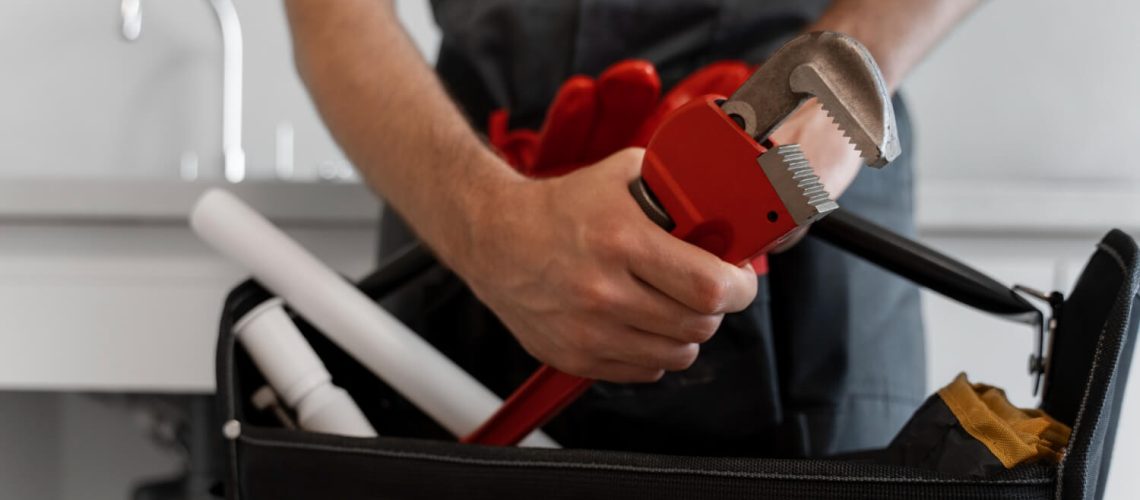Understanding the Impact of Hard Water on Your Plumbing
Hard water is a common issue that can cause significant damage to your plumbing system if left untreated. Over time, the minerals in hard water can build up, leading to clogs, reduced water flow, and even costly repairs. In this post, we’ll explore the effects of hard water on your plumbing and offer solutions to help you protect your pipes. Whether you’re dealing with slow drains or scaling in your appliances, addressing the problem early can save you from future headaches. For those dealing with hard water in the area, Knoxville plumbing services can be a valuable resource in maintaining your home’s plumbing system.
What is Hard Water?
Hard water contains high levels of minerals like calcium and magnesium. These minerals can leave deposits in your pipes and appliances, affecting their performance.
The Science Behind Hard Water
Hard water forms when water passes through mineral-rich areas, picking up calcium and magnesium along the way. These minerals dissolve into the water, increasing its hardness. When hard water flows through your plumbing, it leaves behind tiny mineral deposits. Over time, these deposits can build up, causing blockages and reducing water flow. This buildup not only affects your pipes but can also impact your appliances, making them less efficient and shortening their lifespan.
How to Test for Hard Water in Your Home
Testing for hard water in your home is simple and can be done with a basic test kit. These kits measure the concentration of calcium and magnesium in your water, giving you a clear idea of its hardness level. You can also look for signs like soap not lathering well or spots on dishes after washing. If your test shows high mineral content, you may need to consider solutions like a water softener to protect your plumbing and appliances from potential damage.
How Hard Water Damages Plumbing
Mineral deposits from hard water can accumulate in your plumbing, leading to clogs and reduced efficiency. This buildup can cause significant wear over time, affecting the overall performance of your plumbing system.
Common Signs of Hard Water Damage
You may notice several signs indicating hard water damage in your plumbing. Look for reduced water flow from faucets or showers, which can be due to mineral buildup inside the pipes. Another common sign is the appearance of white, chalky deposits around fixtures and appliances. These deposits, known as scale, can also clog your pipes and reduce their efficiency. If you frequently have to clean out your showerheads or faucet aerators, it might be a sign that hard water is causing damage.
The Long-Term Effects on Your Plumbing System
Over time, the effects of hard water on your plumbing system can be severe. The mineral deposits can cause blockages that reduce water flow and pressure. This can lead to leaks and even pipe damage, requiring costly repairs. Appliances like water heaters and dishwashers can also suffer from reduced efficiency and a shorter lifespan due to the scaling caused by hard water. Addressing these issues early can help prevent more serious damage and costly replacements. Regular maintenance and water treatment options can protect your plumbing system from long-term effects.
The Impact on Water Heaters and Appliances
Hard water can reduce the efficiency of water heaters and appliances, leading to higher energy bills. Regular maintenance can help mitigate these issues and extend the life of your appliances.
Protecting Your Water Heater
Hard water can create scale buildup inside your water heater. This buildup reduces the heater’s efficiency, causing it to work harder to heat the same amount of water. Over time, this can lead to increased energy costs and even damage to the heater. To protect your water heater, consider installing a water softener or regularly flushing the tank to remove sediment. Keeping up with routine maintenance can help ensure that your heater runs smoothly and lasts longer.
How Hard Water Affects Dishwashers and Washing Machines
Hard water can also impact your dishwasher and washing machine. The mineral deposits can build up in these appliances, causing them to run less efficiently. In dishwashers, this can lead to spots and film on your dishes and reduced cleaning performance. For washing machines, hard water can result in dingy clothes and a more frequent need for repairs. A water softener and regular maintenance can help keep these appliances running efficiently and extend their lifespan.
Preventing Hard Water Damage
There are several methods to prevent hard water damage, such as water softeners and regular plumbing inspections. These steps can extend the life of your system and reduce maintenance costs.
Installing a Water Softener
A water softener is an effective way to manage hard water. It works by removing the minerals that cause water hardness. This device exchanges calcium and magnesium ions with sodium or potassium ions, which do not form a scale. Installing a water softener can help prevent mineral buildup in your pipes and appliances, improving their performance and lifespan. You can choose from different types, like salt-based or salt-free softeners, based on your needs and preferences. A professional can help you select the right system for your home.
Regular Plumbing Maintenance Tips
Regular plumbing maintenance is key to preventing damage from hard water. Schedule periodic inspections to check for signs of scale buildup and leaks. Cleaning fixtures and showerheads can help keep them functioning properly and prevent clogs. It’s also a good idea to flush your water heater periodically to remove any sediment. Keeping up with these simple maintenance tasks can help you catch problems early and keep your plumbing system in good shape. Regular attention can save you from expensive repairs and ensure your system runs smoothly.
Choosing the Right Solution for Your Home
The best solution for hard water depends on your specific needs and water quality. Consulting with a professional can help you choose the right option and ensure it fits your home’s requirements.
Assessing Your Water Quality
To find the best solution for hard water, start by assessing your water quality. Use a test kit to measure how hard your water is and identify the levels of calcium and magnesium. This information helps you understand the severity of the problem and what treatment might be necessary. Some test kits are simple and can be done at home, while others may require professional testing. Knowing your water quality is the first step in selecting the most effective solution for your home.
Comparing Different Water Treatment Options
After assessing your water quality, compare different treatment options. Water softeners come in salt-based or salt-free varieties, each with its benefits. Salt-based systems are effective but need periodic salt replacement. Salt-free systems use alternative methods to reduce scaling without adding sodium. Other options include reverse osmosis systems and magnetic descalers. Each type has its advantages and drawbacks, so consider factors like cost, maintenance, and how well it addresses your water issues. Consulting with a professional can help you choose the best solution for your needs.
Safeguard Your Plumbing from Hard Water Damage
Hard water can be a hidden threat to your plumbing system, leading to costly repairs and reduced efficiency. By understanding the impact of hard water and taking proactive measures, you can protect your pipes and appliances. Whether it’s through installing a water softener or regular maintenance, addressing hard water issues early can save you from future headaches. Don’t wait until a minor problem turns into a major expense. Keep your plumbing system in top shape by staying vigilant and choosing the right solutions for your home.



